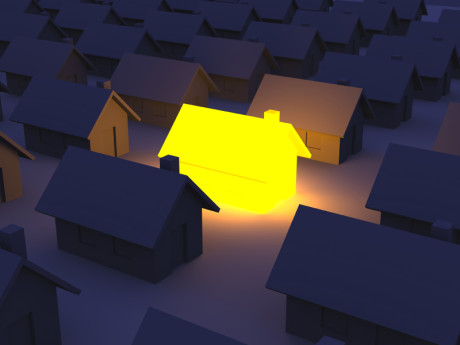
Life is all about the little things. Small improvements here and there can have a huge payoff when given time. This is especially true when optimizing your home’s energy efficiency. All the things that impact your home’s energy footprint can pile up fast, and planning small repairs can easily become overwhelming. Luckily, the Department of Energy has constructed a Home Energy Savings Checklist to help homeowners cut down on unnecessary wastes of energy. Below are a few of the most important tips from the DOE, and why they can have such a large impact on your utilities bill.
Clean Your Filters
Air filters are easy to forget about in your home, but can have a huge impact on both your energy bill and the quality of the air inside your home. Dirty filters not only do a poor job cleaning the air in your home, meaning there are more allergens and bacteria in your air at home, but also force your entire system to work harder to push and pull air through the filters. This means that your HVAC system is costing you more money in energy and pushing air that may be harmful to your health. Cleaning or replacing your air filters is one of the easiest and most important ways to keep your home energy efficient and healthy.
Turn Things Off When You’re Not Using Them
There are a few tips on the DOE list that involve simply turning things off when they are not in use. While it might be a minor inconvenience to have to wait for things to restart, turning things off and unplugging them can actually save you up to 10% of your energy bill. This especially applies to what’s called “Standby Power.” Standby Power is when electrical items are turned off, but are still drawing power from the wall. Most items only draw a small amount of energy when turned off (usually around one watt) but if many items are left plugged in then this energy cost can add up quickly. Some of the biggest standby power offenders include TVs, plugged in laptops, and (surprisingly) your cable box. By unplugging these items when not in use, you can see significant return on your energy bill.
Upgrade Your Lighting
Lights are probably one of the biggest electrical investments in your home. The technology used in lighting fixtures and bulbs has flourished over the past few years. Compact Florescent Light bulbs (CFLs) and LED bulbs both produce light that is comparable, if not superior, to traditional incandescent bulbs at a fraction of the energy expense. In addition, the cost of these bulbs has come down significantly, meaning that it is easier than ever to upgrade your electrical lighting setup to save money.
Optimize Your HVAC Setup
Optimizing your heating and air conditioning system can take some work, but can be done with a minimal investment that will pay off quickly. First and foremost, collect your utility bills to analyze where most of your energy is being used. If a bulk of your energy cost is due to your HVAC system, there are many small tasks that you can perform to make the system more efficient. A good place to begin is by troubleshooting your AC unit, which you can learn about from a previous blog here. Next, try to find and minimize “air leaks” in your home to keep the treated air inside. After, you may wish to consider a home energy audit to completely optimize your home and eliminate all inefficiencies.
Warner Service knows that completely overhauling your energy consumption can take a lot of work, but it really is worth it in the long term. If you have any questions, or need professional help in optimizing your home energy footprint, contact Warner Service today and we will get you set up quickly and easily!

